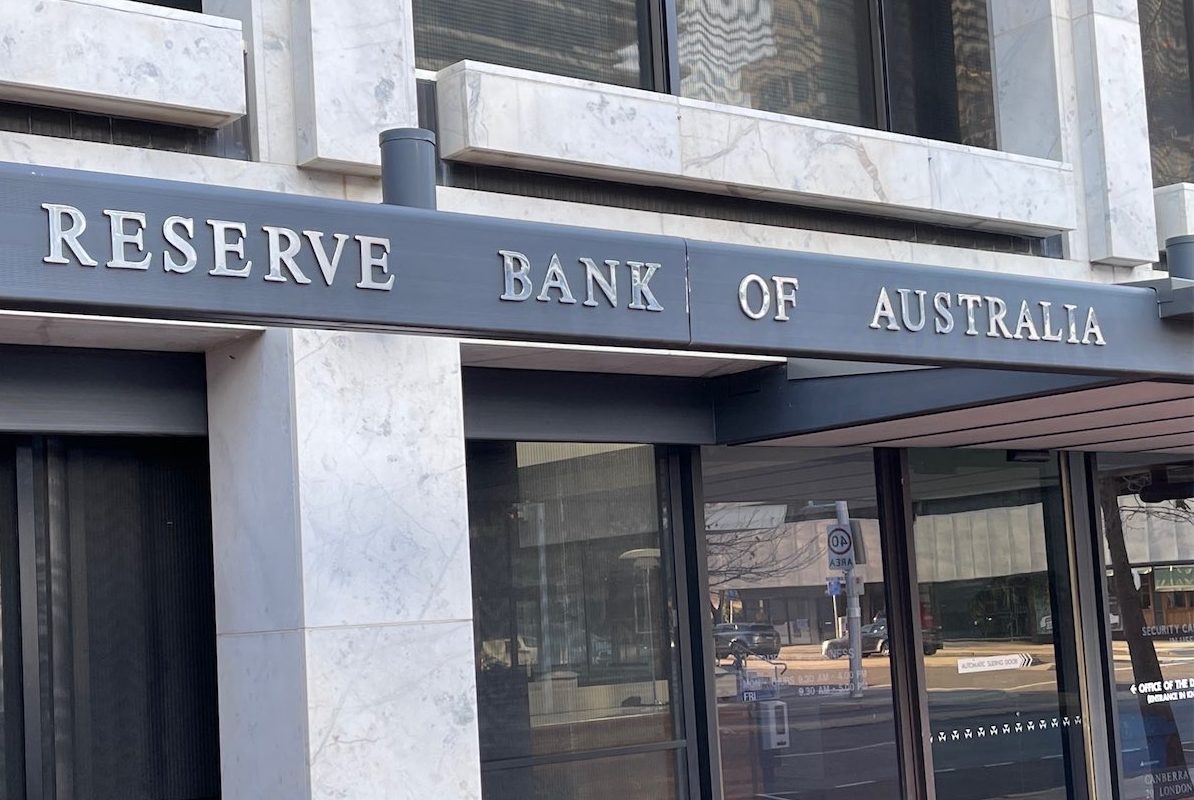Letter writer KARINA MORRIS, of Weetangera, shares her distressing experience with the emergency process at the North Canberra Hospital Emergency Department.
Is there any hope that the problems highlighted by political columnist Michael Moore about Canberra’s health system – in particular, the wait times at hospital emergency departments (first published in City News in June and reprinted as a best-of column on December 19) – will it be addressed by the Health Minister?

It was surprising and disappointing to read that patients at our main hospital had experienced several of the problems that we recently experienced at the North Canberra Hospital Emergency Department.
When we arrived at the North Canberra Hospital’s ED with a family member with chest pain following an accident at home, we found a slow-moving triage queue with no one checking on the condition of those waiting in the queue.
There were 23 people in the waiting room waiting to be seen. We waited more than four hours to be seen by a doctor. There were few nurses in evidence, and one nurse told us that she was working a double shift (18 hours).
We finally decided to leave after more than seven hours (at 1.30am), after tests had been conducted but without waiting for discharge instructions.
What Michael Moore says is bleeding obvious: “EDs, in particular, must be staffed to deal with the needs of the incoming patients.”
Karina Morris, Weetangera
Barr assertion deserves scrutiny
Political columnist Andrew Hughes’ assertion that Chief Minister Andrew Barr finishes the year as the ACT Assembly’s top performer deserves scrutiny (CN December 19).
While Barr may appear politically dominant, his record raises serious concerns for ACT ratepayers.
Under his leadership, Canberra has seen skyrocketing rates, taxes, and fees, placing an increasing financial burden on residents.
Meanwhile, Barr’s government has been accused of prioritising relationships with developers over the needs of the community, leading to contentious urban planning decisions that have eroded trust.
Critics argue that the government’s approach to densification has often been at odds with residents’ desires for sustainable, well-planned growth.
Furthermore, the transparency and accountability of some major projects under Barr’s watch remain questionable, amplifying frustration among voters.
These issues paint a more complex picture than Hughes’ endorsement suggests, highlighting the growing dissatisfaction among those who bear the brunt of Barr’s policies – ACT ratepayers.
Errol Good, Macgregor
Population is only part of the problem
Dr Douglas Mackenzie’s assertion (letters, CN December 19) that population is the energy problem is only partially accurate.
Five interacting factors influence humanity’s environmental impact: population is only one. The others are: use of natural resources, energy source, the efficiencies of the technology we use and the amount of damaging waste and pollution we put into the environment.
We can reduce energy demand by making less unnecessary stuff and improvements in technology. Changes in both these are also needed.
Peter Tait, via email
Bigger blocks might solve population problem
Readers may remember my previous letters that said, in order to reduce house prices Henry George quite correctly suggested that low-cost land should be allotted to home builders by the government. Increased supply would steadily reduce the price of all property in that area.
However Mr George did not specify the size of the individual land allocation.
If you go around the latest land developments in Canberra, you will see that government policy, when not forcing people to live in units, is to allocate very small plots of land to be built on, at a very high price. These houses are built with their eaves nearly touching, and with very small backyards. This is very bad public policy for the entirety of Australia.
Richard Dawkins, the geneticist and socio-biologist, author of The Selfish Gene and many other books, noted that if any vertebrate wishes to breed, each species required a certain minimum size of territory to breed on.
Australia’s population is collapsing, only sustained by immigration. We need to have more than two children per couple if the population is to expand, but we are down to one “golden child” on average. This is disastrous.
While the cost of living and the requirement for women to work are a major factor, Dawkins and other socio-biologists would point out that having a large enough house surrounded by a large piece of land is a prerequisite to encourage a large family.
While to my knowledge there has been no research done relating the size of the family to the size of the land on which the house is located, I suggest that the instinctive preference of the inhabitants of Australia is the quarter acre block. This is large enough to supply privacy, and the house can be expanded if need be. If every family in Australia dwelt on a quarter acre block, and this is quite possible, we would have no population problems.
Tim Walshaw, Watson
More attention to the needs of the community, please
I read with interest Leon Arundell’s letter highlighting another year of turmoil for the government-funded Conservation Council,
He highlighted a meeting on November 21 (see letters, December 5) where candidates offering themselves for re-election who opposed light rail and had a preference for a rapid bus transit system because it was far more cost-effective were opposed.
After the last election, I was looking forward to the Assembly including a large component of Liberals and independents. Hoping that we would get more transparency on the expenditure pertaining to large infrastructure projects, public transport and the gifting of development sites to developers of important public assets such as The Woden public pool site.
A 50-metre pool is a vital asset as is the one in Civic for training, competitions and recreational swimming. Visit any centre in the school holidays and observe the crowds.
The Stromolo Leisure Centre is already hosting most of the school carnivals and school swimming lessons at the end of the year and, as a result, there is restricted access to the pools occurring for about five months of the year.
I hope the new members of the Legislative Assembly pay more attention to the wants and needs of the whole community.
Linda Seaniger, via email
Without nuclear, we won’t achieve zero emissions
Interesting to see one of your regular columnists accuse Peter Dutton of a scare campaign. I seem to remember Anthony Albanese and his left-wing mates recently running memes of three-eyed fish in reply to Dutton’s nuclear vision. Now they just trot out the same old line about it being expensive.
No mention, either, of the ABC’s inherent bias against anything nuclear, Trump or anything or anyone conservative. How about the ABC running a story falsely accusing Australian soldier Heston Russell of multiple firing at an unarmed Afghan soldier, which was subsequently proven to me made up and doctored with barely an apology from aunty.
But they do have history, remember when they falsely accused the Australian Navy of burning refugees’ hands?
I have to laugh when they trot out the other tired old line about nuclear being 15 years away, well wasn’t solar and wind power 15 years away at one stage. More reason to get started with nuclear now and the current government to get rid of the ridiculous nuclear ban.
Actually, if we do the maths with the current target of zero emissions by 2050, if we have nuclear by say 2040, we will have a decade of it which would greatly help in achieving those lofty targets, as nuclear power doesn’t not produce any carbon dioxide emissions, which makes it also strange why Labor and the left are against it.
Overwhelming scientific evidence demonstrates that without nuclear power we won’t be able to achieve zero emissions, as no country our size has ever or will ever be able to run on renewables alone.
Your regular columnist also mentioned the contribution of Coalition spending during the pandemic, without mentioning the contribution of Labor premiers’ spending during the pandemic. The Coalition was held hostage by mainly Victorian, Queensland and WA premiers and, to a lesser degree, the ACT.
Interestingly, those three main premiers – Andrews, Palaszczuk and McGovern – are no longer there and Victoria is in horrendous debt. NSW, which had a Liberal premier at the time and who took in most of the overseas travellers, had a more relaxed and humane approach, with the biggest population, fared much better.
I guess, as poor, old Albanese is showing now, Labor is great at spending other people’s money, but not much good at anything else, apart from whinging at the opposition.
Ian Pilsner, Weston
Let’s stop the Voice blame game
Let’s stop wanting to lay blame for the failure of the Voice referendum (CN , December 12).
Various factors confused the public such as disagreement amongst experts about the Voice’s legal powers, disagreement about the scope of the Voice being limited to matters specific to First Nations people or to all matters of concern to them, and should there be two separate referendum questions or an amalgamated one, which leaders subsequently pressed for.
Plus claims by some First Nations leaders that support for the Voice amongst communities was substantially divided.
On election night Anthony Albanese emotionally promised to bring the issue of the Voice to a head, after the Coalition had prevaricated for some five years. He has always stressed it was not “his Voice” ; he would do what First Nations wanted. His determination to push through may be “ego”, but to me it’s implementing his promise, as far as he could.
The government continues to work with the Council of Peaks, a representative body of more than 80 First Nations community controlled peak organisations and members, representing some 800 First Nations organisations. So, let’s move on to more productive consideration of issues.
Bill Bowron, Wanniassa
The CSIRO is not what it used to be
The CSIRO is constantly and erroneously being referred to as “a world-renowned scientific organisation”. It used to be, but not any more.
Over several decades, the CSIRO has not received the funding it richly deserves. In the July federal budget it got $916.5 million – $92 million less than the previous year. It is also closing its only US-based subsidiary and planning to shed in more than 500 staff.
Its top scientists have long ago departed for greener pastures overseas. How many nuclear scientists are currently on its payroll (if any), and what practical expertise have they got in the production, installation and costing of nuclear plants to compile reports such as GenCost? Regrettably, the CSIRO is now only a shadow of its former, well-respected self and the GenCost report has to be taken with a pinch of salt as it appears to be based on many debatable assumptions.
Mario Stivala, Belconnen
There’s wombats and there’s wombats!
Susan Cuttendem’s letter (CN December 12), with its graphic photo of a dead wombat with a joey half out of its mother’s pouch, is a timely reminder of our inhumane condition as a society.
Susan shames us when asking what efforts have been made to save these gentle creatures from being run over when they attempt to cross a highway in a country area near Canberra.
That question needs to be dropped squarely into the lap of the wasteful Barr government who are blowing scarce funds on a useless tram when it could be better used honey-combing our road systems with pvc piping for wombats to safely cross underneath, supplemented with soft solar lighting and signs for safety
I fear though that the struggler in this place does not give a hoot about wombats when in a real-life situations, with mum and the family in an expensive auto, a split decision has to be made, clobber the wombat or hurtle off the road into the rocks/trees and wipe everyone out, The wombat runs second!
Anyhow, speaking of giving a hoot, fear not, the wombat numbers will remain in balance because of the numbers of these we have in the Legislative Assembly, the root cause of many of our difficulties.
John Lawrence via e-mail
Who can be trusted?
In a world of spin and confusion, there’s never been a more important time to support independent journalism in Canberra.
If you trust our work online and want to enforce the power of independent voices, I invite you to make a small contribution.
Every dollar of support is invested back into our journalism to help keep citynews.com.au strong and free.
Thank you,
Ian Meikle, editor





Leave a Reply